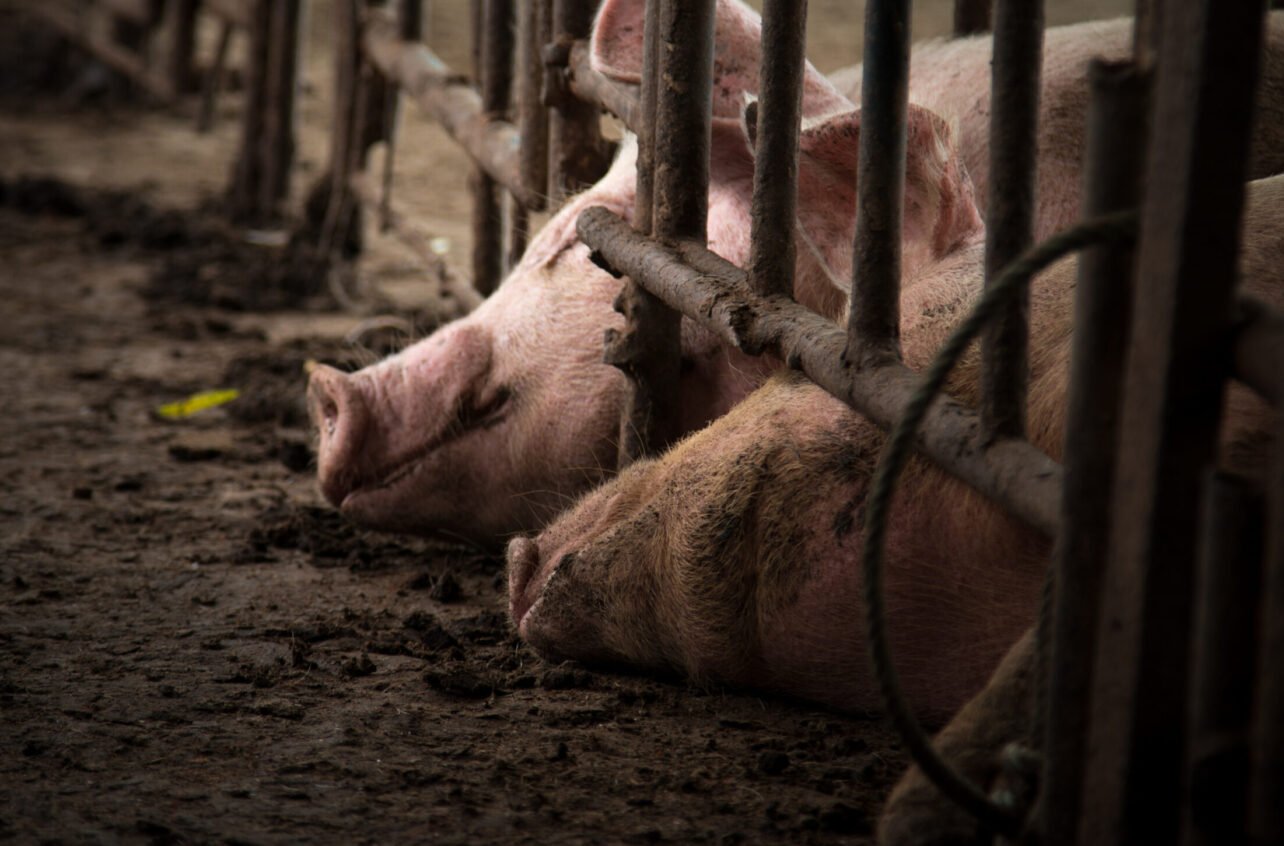Share
FOR IMMEDIATE RELEASE
Media Contact:
Karen Hudson
Socially Responsible Agriculture Project
Senior Regional Representative
(309) 308-8846
karenh@sraproject.org
Hugh McHarry
Mason County Concerned Citizens
Spokesperson
(309) 267-9624
Mason County, Illinois–Community members breathed a sigh of relief after the U.S. Environmental Protection Agency (EPA) announced the termination of a government loan that would have funded a new industrial hog operation in Mason County, Illinois.
In a December 23 memo, EPA Region 5 wrote:
“Based on recent communications with USDA-FSA on 10/26/2021, 11/12/2021, and 12/21/2021, EPA Region 5 understands that the applicant has withdrawn the funding application for this project.”
The proposed Fanter Farms concentrated animal feeding operation (CAFO), which would have housed 2,480 hogs, sparked major opposition from locals concerned about the potential human health and environmental effects.
The CAFO, backed by a Farm Service Agency (FSA) loan, was set to be built over the shallowest point of the Sole Source Mahomet Aquifer, a crucial source of drinking water for half a million Illinois residents.
Building a CAFO so close to such an important aquifer puts the surrounding communities at risk of having their drinking water contaminated with manure runoff, antibiotics, and other potentially harmful substances.
Fanter Farms applied for a “Beginning Farmer” loan through the U.S. Department of Agriculture’s guaranteed FSA loan program.
In accordance with the National Environmental Policy Act and the National Historic Preservation Act, FSA must consider the environmental and cultural effects of government-issued loans made through its program.
A multitude of Illinois residents and members of Mason County Concerned Citizens (MCCC) coalition submitted individual and group comments to FSA regarding the potential negative impacts of the CAFO on surrounding communities and beyond.
The comments raised concerns about the potential impact to the aquifer, local infrastructure costs, property devaluation, the Illinois Chorus Frog–deemed “threatened” by the state–and the proven human health risks tied to living near CAFOs.
Some of the comments called out FSA for relying on faulty and incomplete information when it performed an environmental assessment that determined the CAFO would have “no significant impact” on the environment.
Hugh McGarry, Mason County board member and spokesperson for MCCC, said:
The FSA only performed a cursory examination or environmental assessment when a more thorough and comprehensive Environmental Impact Study should have been carried out, especially due to the impact on the Mahomet Aquifer. But most importantly, the loan decision by FSA of FONSI was based on faulty and incomplete information.
Karen Hudson, senior regional representative at Socially Responsible Agriculture Project, said:
The MCCC coalition vows to remain vigilant in their efforts to preserve quality of life in their community. They have joined with others including the statewide Illinois Coalition for Clean Air and Water to educate the public and elected officials about the devastating impacts of loosely regulated CAFOs on communities.
About SRAP:
SRAP informs the public about the negative effects of industrial livestock operations—also known as factory farms or concentrated animal feeding operations (CAFOs)—while providing direct assistance to communities impacted by this destructive industry. Through education, advocacy, and community organizing, SRAP empowers people to protect public health, environmental quality, and local economies from the damaging impacts of factory farms, and to advocate for a socially responsible food future. For more information, visit www.sraproject.org.
About Mason County Concerned Citizens: The Mason County Concerned Citizens is a growing coalition of farmers and residents calling for more stringent regulations regarding industrial animal feeding operations. Follow them on Facebook at The Mason County Hog Farm Forum.
About ICCAW:
ICCAW is a statewide coalition of family farmers and community groups advocating for sound policies and practices that protect the environment, human health, and rural quality of life from the impacts of large-scale, industrialized livestock production facilities in Illinois. For more information, visit www.iccaw.org.

